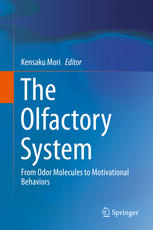

Most ebook files are in PDF format, so you can easily read them using various software such as Foxit Reader or directly on the Google Chrome browser.
Some ebook files are released by publishers in other formats such as .awz, .mobi, .epub, .fb2, etc. You may need to install specific software to read these formats on mobile/PC, such as Calibre.
Please read the tutorial at this link: https://ebookbell.com/faq
We offer FREE conversion to the popular formats you request; however, this may take some time. Therefore, right after payment, please email us, and we will try to provide the service as quickly as possible.
For some exceptional file formats or broken links (if any), please refrain from opening any disputes. Instead, email us first, and we will try to assist within a maximum of 6 hours.
EbookBell Team

4.7
16 reviewsThis book summarizes recent advances in understanding of the mammalian and fish olfactory system and provides perspective on the translation of external odor information into appropriate motivational and behavioral responses. Following the discovery of the odorant receptor gene family in 1991, understanding of the basic biological mechanisms of the olfactory system has advanced enormously. Despite such rapid progress, however, it remains unclear how odor information is processed at levels beyond the olfactory bulb, including the olfactory cortex, olfactory tubercle, and orbitofrontal cortex. This book thus describes the most recent developments in olfactory research, with particular focus on the basic neurobiological mechanisms of the neuronal circuit function in the olfactory system and its related higher centers. Exploring the basic functional logic of the neuronal circuits in the olfactory system in this way appears to be crucial in understanding the workings of the complex neuronal circuits of the brain, particularly those in the cerebral cortex that link sensory perception to appropriate behavioral responses. This book is written for the coming generation of scientists: undergraduates, graduate students, and postdoctoral researchers in the fields of neuroscience, neurobiology, chemical senses, food and nutritional sciences, medical science, sensory psychology, and behavioral sciences.